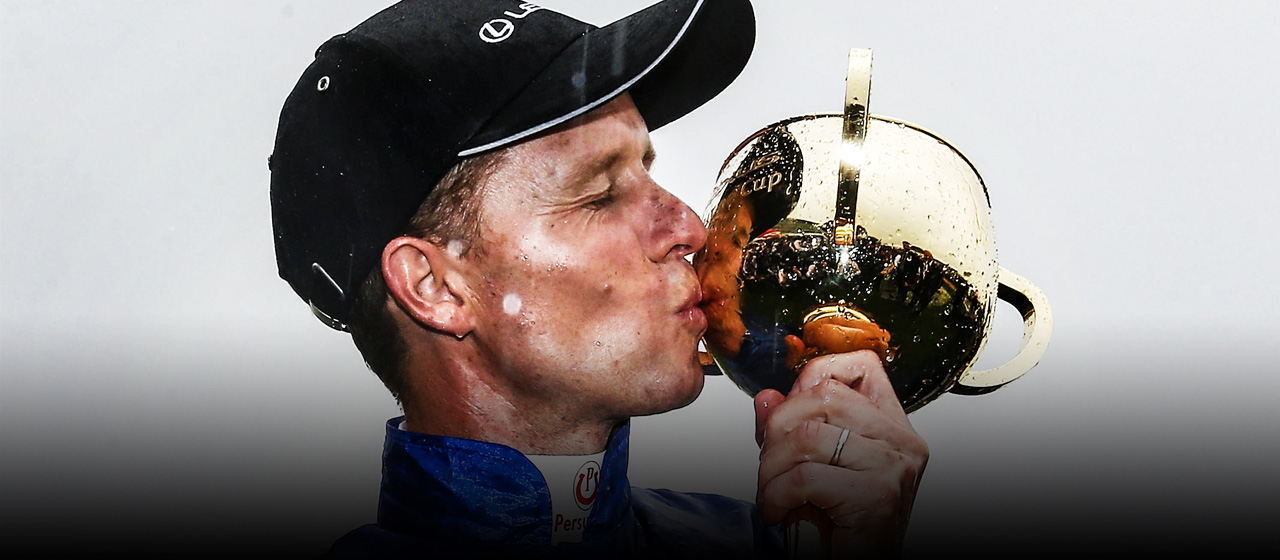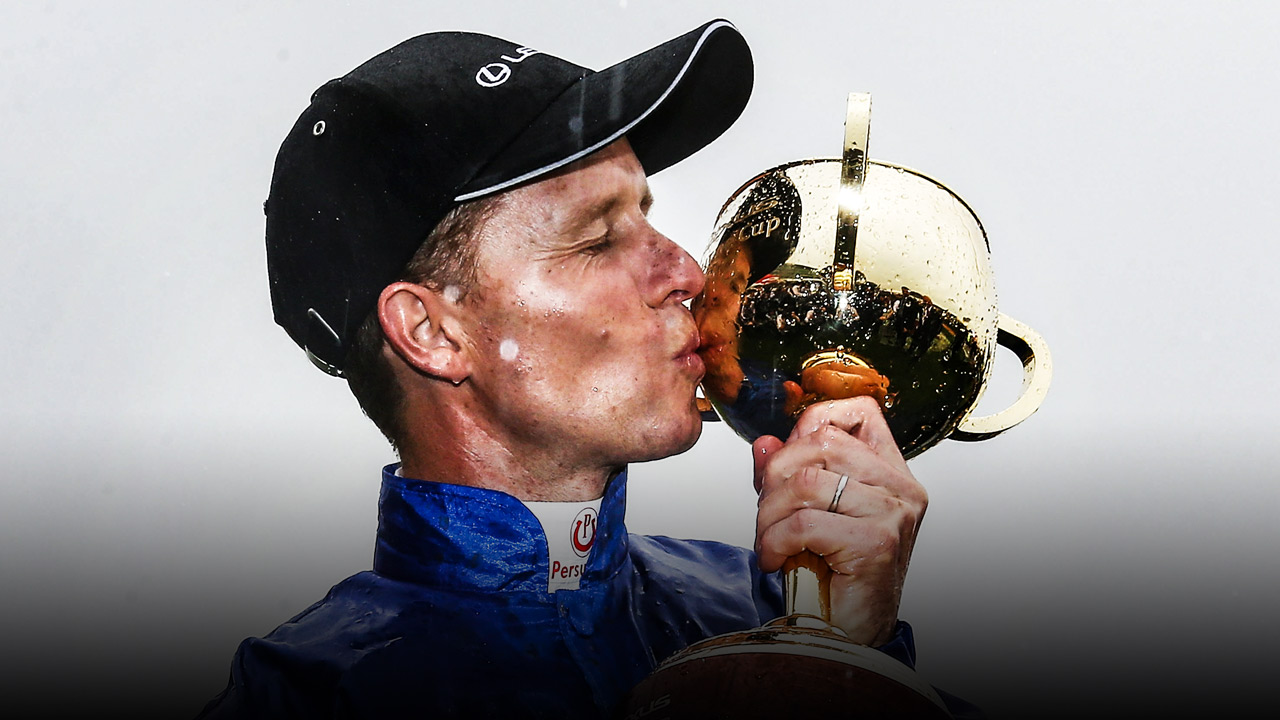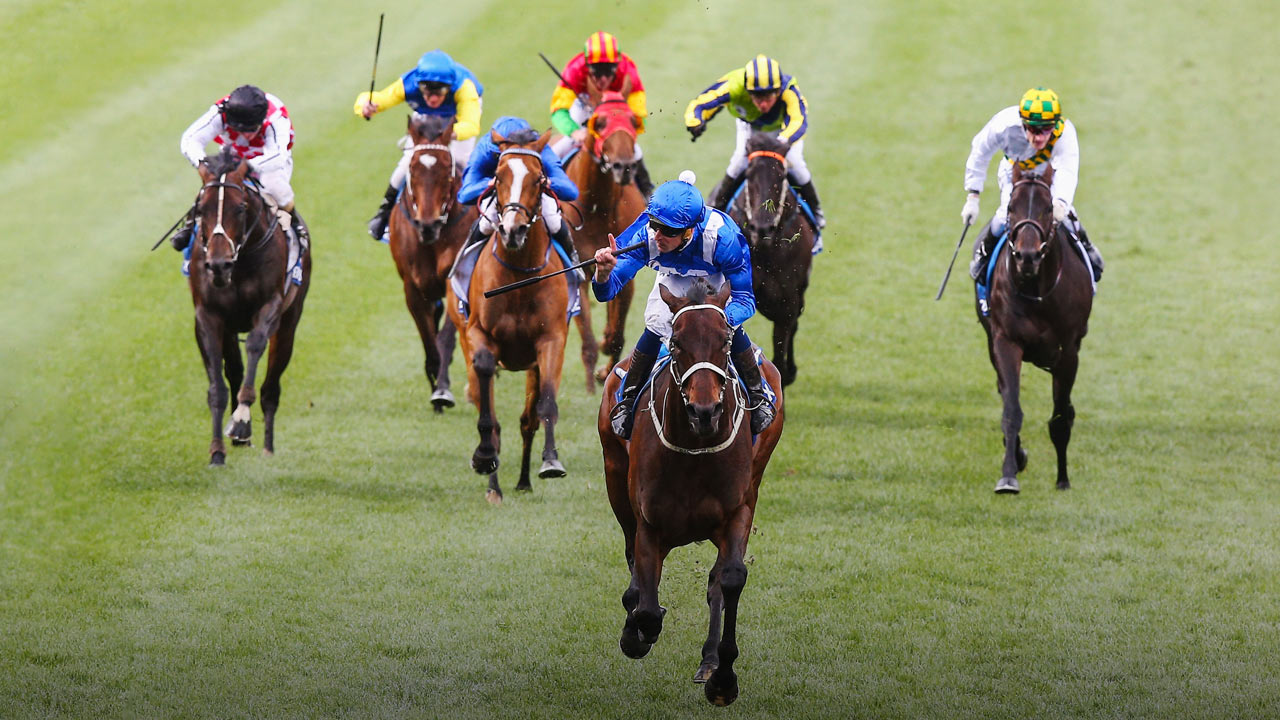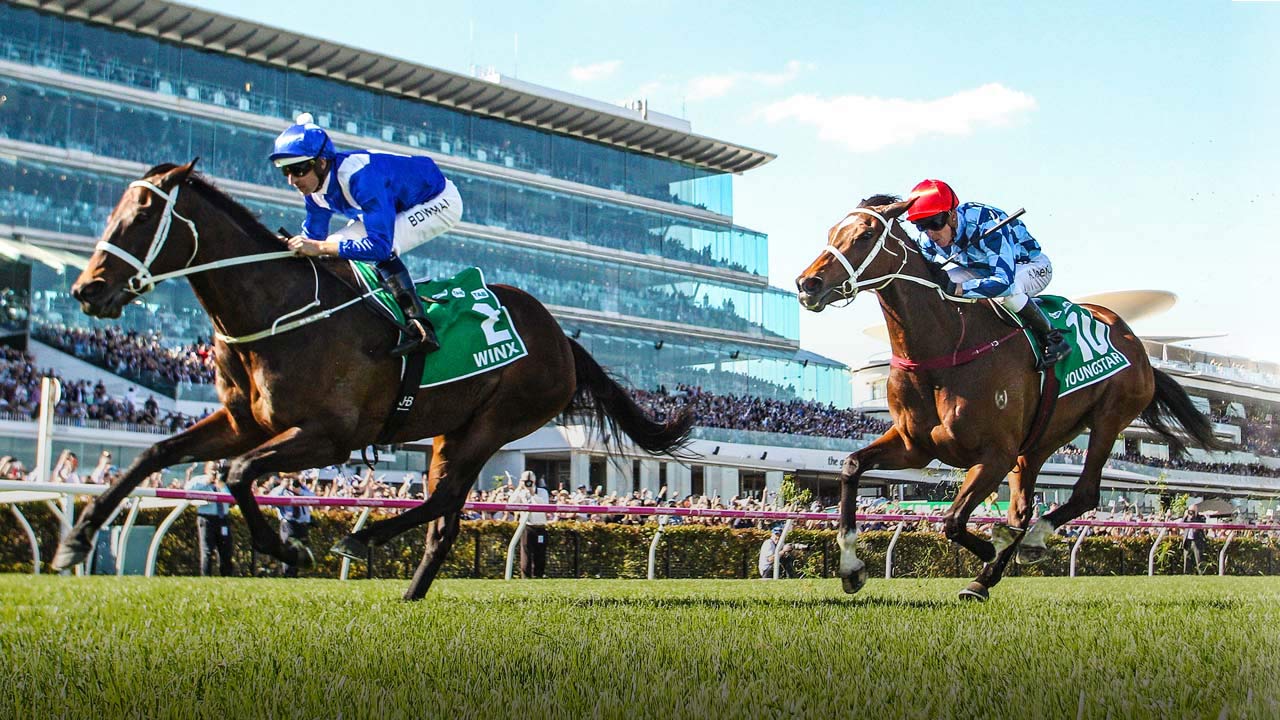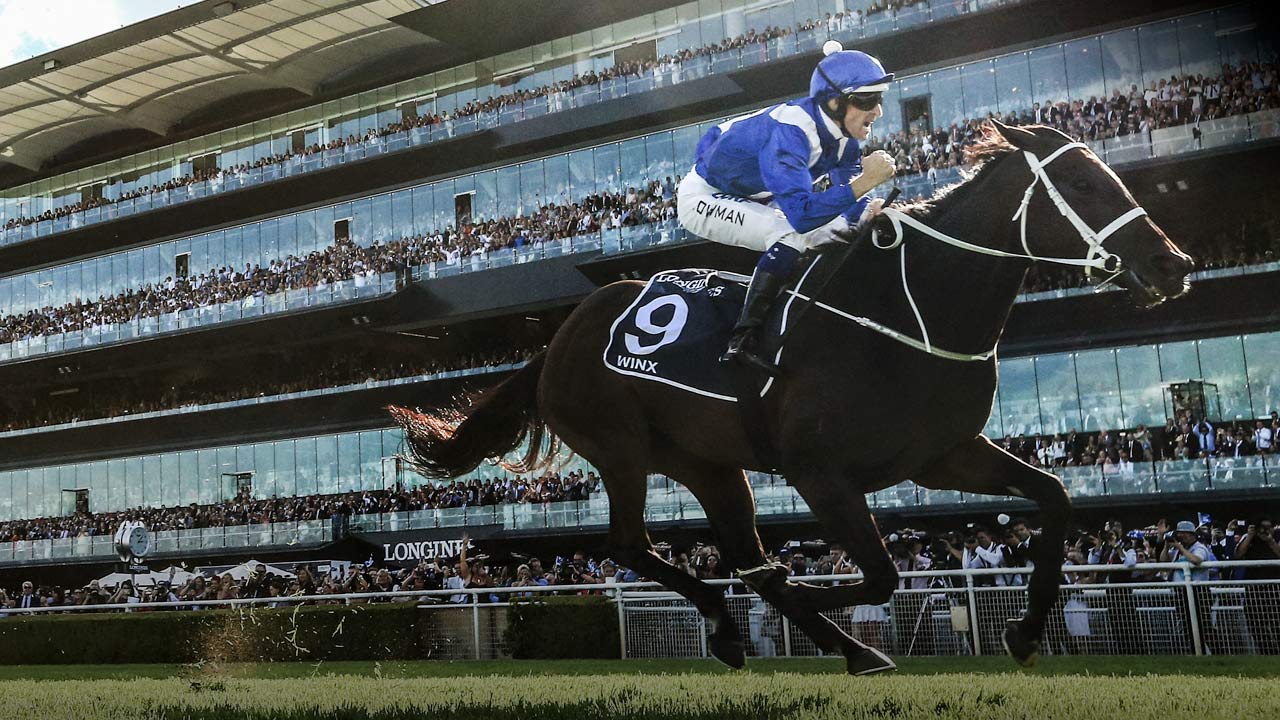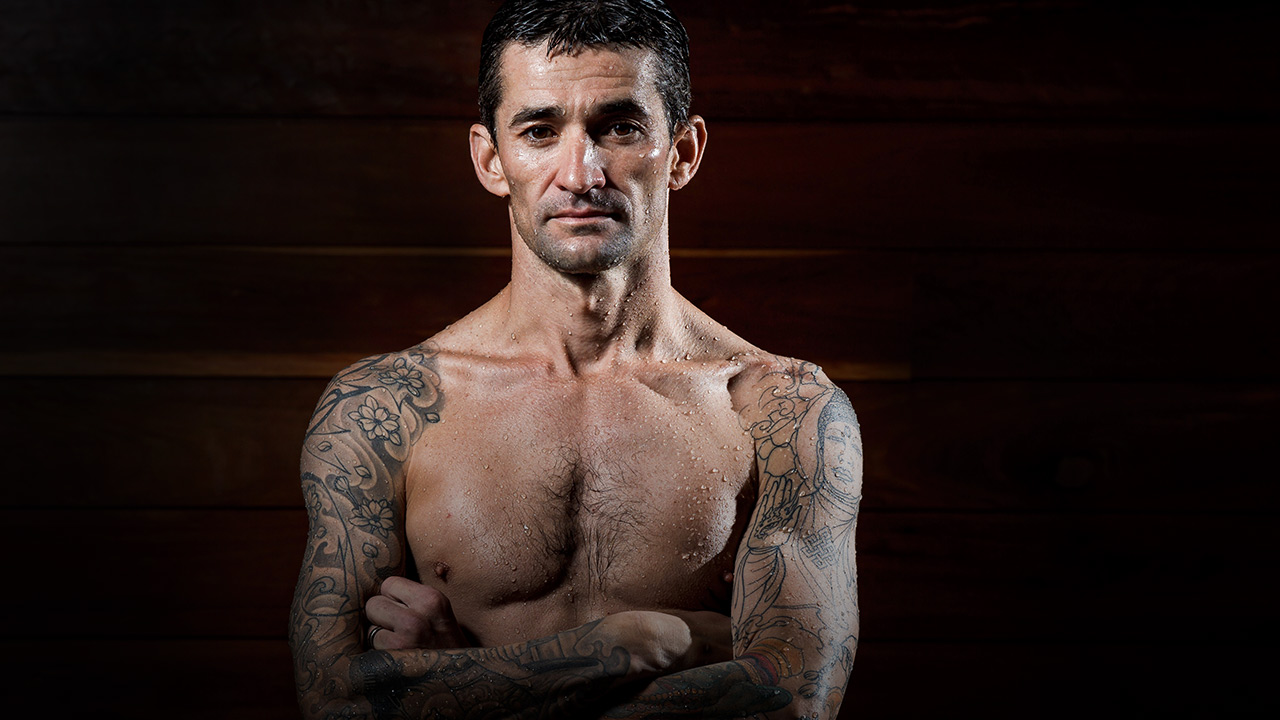Horse Racing
The pressure of the Cup
Whether it’s a Wednesday race at Canterbury or the Melbourne Cup, my preparation doesn’t change.
I’ll sit down and do three, four or sometimes five hours of video work before every meeting, looking at my horse and the opposition I’m racing against.
I like to get an idea how it’s going to play out from the barriers, the position each runner likes to take and how the race might evolve, given different horses have different running styles.
It can be time-consuming, but I like to go out there knowing that I can look at each horse and jockey’s colours and understand where it could be in the run, and if it’s got a chance.
There’s a lot of good luck involved as well. A lot of things need to go right to win and only one or two things need to go against you and the race could be gone.
In my working week, leading up to these big carnivals I like to prepare well not only physically with things like massage and physio, but also mentally.
If you focus too much on the outside world or social media, it can impact your build-up in many different ways. It can have you anxious, nervous or excited and if you’ve got that too far out from the race meeting, it can affect you.
I’ve really focused on turning the phone off and trying not to get too emotionally involved on the social media side of things.
There’s plenty of things I like to do away from the track, in terms of switching my mind off. I like going into the hyperbaric chamber a fair bit and float tanks, just to get away from the noise.
I love knowing that I’m under pressure. I like to thrive off that to maintain focus on the job at hand.
Sometimes I can feel a little bit worried. There’s a lot of money riding on what you’re about to do on the back of a horse. Not only for the owners, but also a lot of punting money on your back as well. The last thing you want to do is make a wrong call and cost the horse victory.
It can be a case of wanting to succeed, but also not wanting to fail.

The path to victory
Before you jump, you have a bit of a plan in your head as to how your race might unfold. For last year’s Melbourne Cup, which I won on Cross Counter, I drew barrier 19.
I hadn’t actually sat on the horse leading up to the race, so it was a case of having my first sit on him on the day of the Cup.
Once you hit the back of the saddle, it’s about quickly tuning in to how your horse is reacting. The build-up can be quite intense with the noise of the crowds, so it’s important to keep the horse relaxed.
For the preliminary run to the gates, you want them cantering to loosen up. I really focus on the horse’s breathing and my own, trying to keep both of us calm. When you’re in the barrier, it’s the same thing. You’ve got to get set.
Then the gates open and your plans change instantly.
I didn’t begin as well as I’d hoped last year, so I had to adapt to what was unfolding.
One thing I learned as a young kid from my uncle Tony is that with riding horses, if you miss the start or your horse is slow to begin, try and make it up at the end of the race, not at the start or in the middle.
So last year, I dropped Cross Counter back and we settled. We were second or third last as we went through the first couple of furlongs.
Passing the winning post for the first time, it’s all about trying to stay in tune with how quick the field is going. I thought the tempo was okay.
That’s when the overseas horse broke down and I was just able to get out of the way and stay on a relatively even keel as we turned the first corner.
At about the 1600-metre mark, the pace had slackened a little bit. I thought, ‘I’m too far back here’, but reminded myself to stay patient. The last thing you want your horse doing is over-racing.

If you’re pulling against your horse to restrain it, then you’re using energy that could be vital at the end of a race, especially in a Melbourne Cup which is over two miles.
Once we got to the last 1200 metres, that’s where the dynamic of the race changes and things start to evolve. I was able to get on the back of Yucatan, which I had as one of the hardest to beat in last year’s race.
I was glued to the back of James McDonald as we passed the 1000- and 800-metre marks. As we got close to 600 metres out, I saw Marmelo was inside of me and had taken an inside route.
I was pretty happy to continue following Yucatan, but the horse started to tire a little bit in front of me. He hadn’t taken me as far as I thought he would, so I had to do a right-hand turn and edge my horse to the outside.
I knew at the 400-metre mark I was going to finish well. It was all about staying balanced and urging the horse along using the key principles I’d learned as a kid, apprentice and senior jockey.
I was a little bit anxious. I thought I had to make up too much ground, but I was able to get the horse to produce a really good finish. He was flying and made up many lengths in those last two furlongs.
It wasn’t until about the 150-metre mark that I thought, ‘I’ve got this race won now’. It was a magic feeling to get the job done.
The enjoyment factor was there straightaway. I suppose it’s like kicking a winning goal in an AFL Grand Final or sinking that putt to win a major; it’s a mix of joy and relief.
My first Melbourne Cup win probably took a little while to sink in but, I think having just won my third that feeling was well and truly there straightaway.
It felt a bit more special too, given I’m now married to Cathy with four young kids, and them being able to savour a bit of that excitement and success as well.

The only avenue for me
I grew up in Streaky Bay, a small farming and fishing town on the coast of South Australia.
There’s only about 1,500 people living there, and you could meander around after school, with Mum and Dad at work. You’d find your own way home and then jet off to catch up with mates at the beach or whatever, without your parents knowing where you were.
There was just an understanding you’d be back at 5:30pm.
I grew up on Centenary Road, which is where my nan and pop used to live, and where their stables were.
Pop was in his 60s when I was a kid and if he wasn’t training horses, he was shearing sheep. He was a hard worker, grafting away with only a few bob in the bank, working for his weekly groceries.
In our close family, I had uncles who were shearers, fishermen and farmers. They were grassroots workers, who were there for me as a kid to watch, study and learn from. Being around a family that didn’t mind a bit of hard work was inspirational and influential for me.
I played plenty of sport and like most young country kids, I had that will to win. I became more driven as I grew up.
My heart was set on becoming a jockey from quite early on. My dad, Phil, and two of my uncles, Tony and Darren, were jockeys. Pop was a jockey as well, before he became a trainer.
I was always around the horses and that passion grew stronger as I got into my teens. Luckily, I was a small kid that didn’t grow too heavy or too tall, because there was never another avenue for me.
I was good at school without being a star, but as soon as I could sign up to become an apprentice, that was the path I was on.
More about: Jockeys | Melbourne Cup
